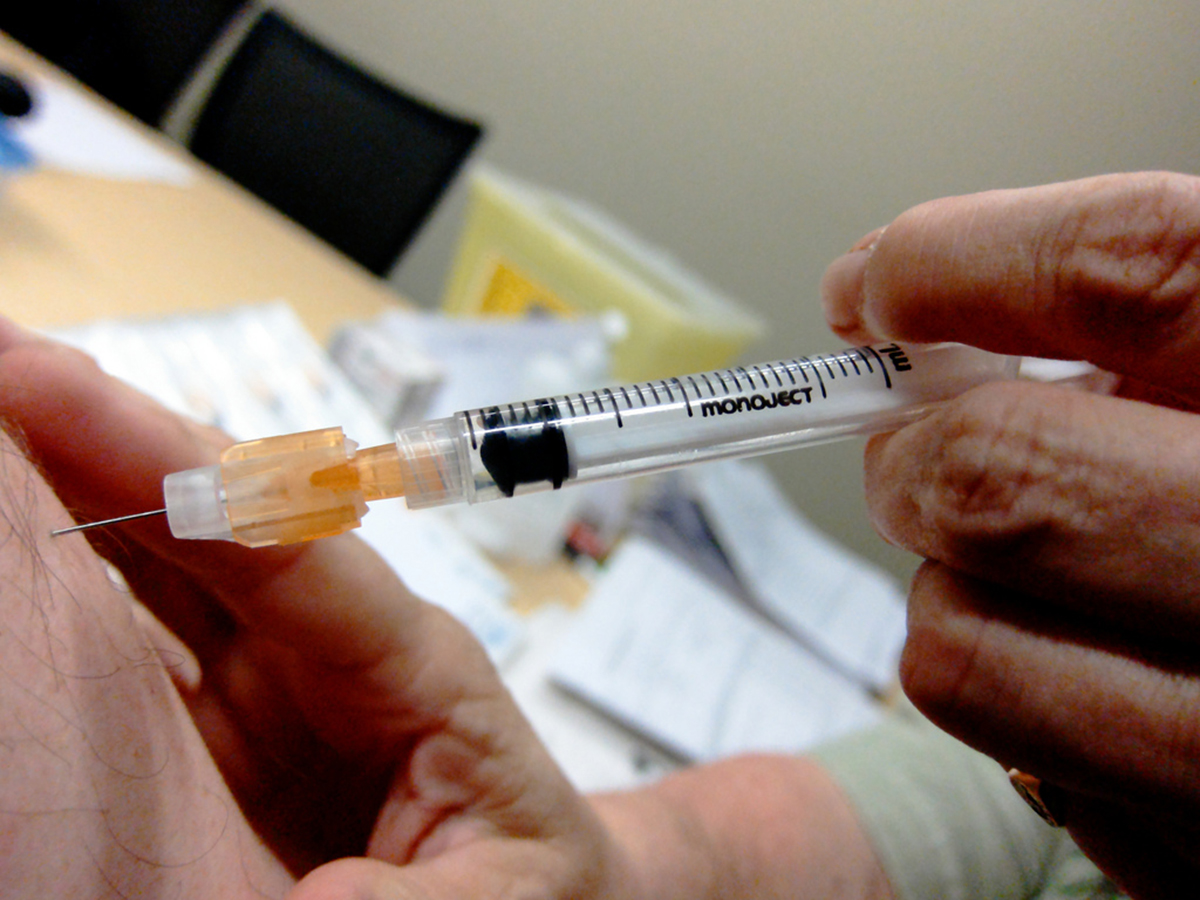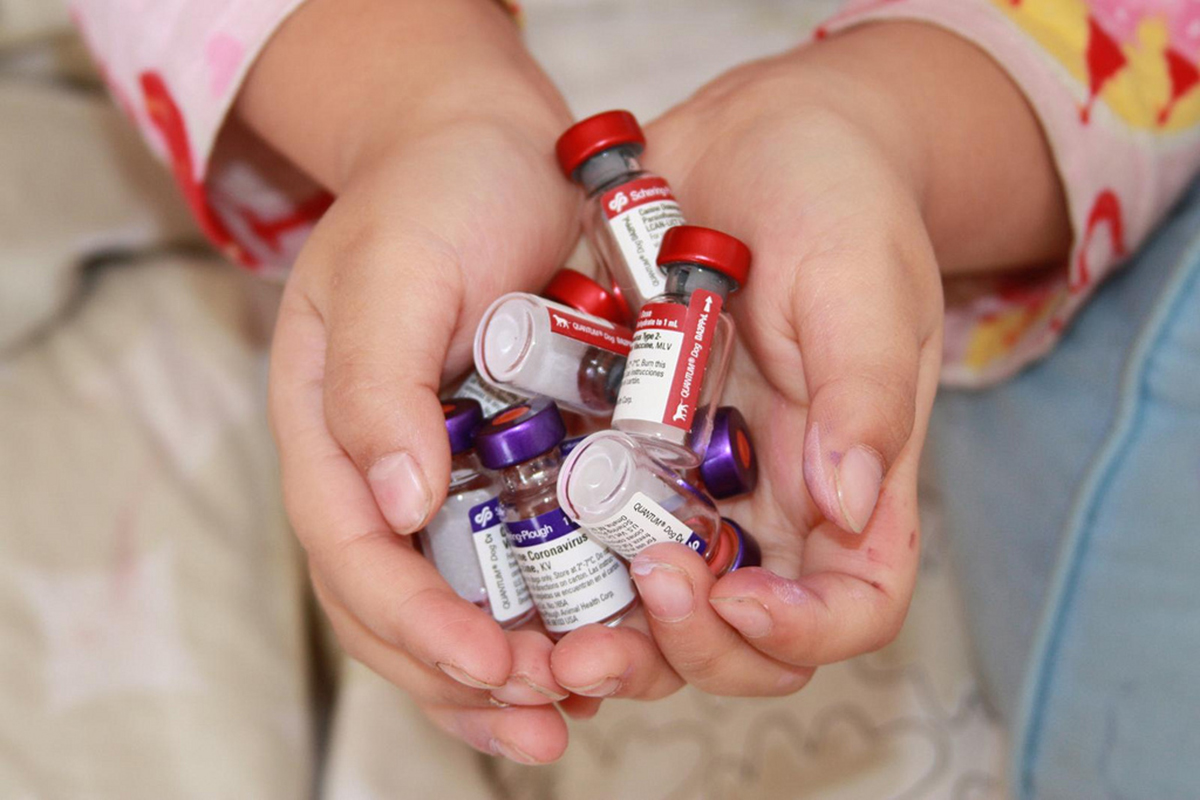Human papillomavirus infection, or HPV, is an infection caused by a virus in the Papillomaviridae family. HPV is a very serious infection — and is responsible for more than half of the cervical cancer cases in the whole world. It is also the most common sexually transmitted infection (STI). HPV is characterized by warts.
It's clear that you'd want to do everything you can to protect yourself from HPV. In fact, a vaccine against the HPV virus has been developed and is already being used in girls, teens, and women. However, not everyone is sure if this vaccine is safe or not.
Let's take a look at everything you'll need to know about the HPV vaccine.
Have you heard about HPV?
Human papillomavirus (HPV) is a virus that must be taken seriously. It is responsible for causing a genital infection, which is transmitted through skin-to-skin contact, during any type of sexual intercourse, including vaginal, anal and oral. HPV is the most common sexually transmitted infection in the U.S., according to the Center for Disease Control (CDC) and it infects the skin and mucous membranes of male and female genitals.

A virus that can cause cancer
There are more than 40 known types of HPV; some of them cause dormant infections, meaning the virus is present but doesn’t cause any symptoms. In some other cases, the infection can cause chronic genital warts, which can be treated, but are also uncomfortable and of course, contagious.
Among them, the 6, 11, 16 and 18 types are the most dangerous, since they have been linked to 70% of the cases of cervical cancer and 90% of genital warts cases, in the U.S. Apart from cervical cancer, high-risk HPV strains have also been classified as causing agents of other cancers, such as cancers of the anus, penis, vagina, vulva and oropharynx.
HPV infection is mainly diagnosed in teens and young adults of 16 to 24 years old. Because it only requires skin contact to be transmitted, the use of a condom doesn’t protect against the infection. What’s causing concern, though, is that most of the times, the infection is asymptomatic, making transmission very easy, specially in people that are sexually active and have several sex partners. So, it is very important to find a more effective form of prevention in order to reduce the incidence of cervical cancer among the world.
Fighting against cancer: an anti-HPV vaccine
In recent years, 2006 to be more specific, the U.S. Food and Drug Administration (FDA) approved the use of a vaccine to prevent HPV infection.
Read More: Interferon Therapy For HPV Infection
The vaccine can be administered to girls from 9 years of age up to women of 26. The treatment includes three shots of the vaccine over a period of six months, offering protection against the virus for four to five years.
The Controversy: Is The Vaccine Effective And Safe?
The introduction of this vaccine has raised controversy, mainly because it deals with a very sensitive topic, which is sexual activity among teenagers. In many countries including the U.S., the vaccine has been introduced as mandatory in the vaccination scheme, and it is being administered to girls as young as 9 years of age.

Pros and cons
But, what is the thought of people in favour and against the HPV vaccine?
It also promotes sexual and reproductive health education, especially among teens and young adults. Knowledge on cervical cancer and other sexually transmitted diseases, as well as prevention, including regular screening, is valuable information that is explained to parents and teenagers when getting the vaccine.
On the other hand, people against HPV vaccination consider that its use will increase the number of sexually active teenagers and will promote promiscuity. Others are just concerned that there might be too many vaccines in the vaccination scheme, raising the question whether this may cause any health related issues or not.
Some women have reported mild secondary effects after being vaccinated, but nothing can be assured, since it is a relatively new vaccine. A monitoring program is currently being run in order to collect data regarding the safety of the vaccine after its general use.
Other facts to consider about the HPV vaccine
The coverage of the vaccine is also a matter of discussion, because it doesn’t protect against all the oncogenic HPV types that have been identified.
Taking all these issues into account, it is important for all women, vaccinated or not, to get tested continuously to detect any HPV infection.
Finally, the cost of the vaccine is also an important issue to address. People with healthcare can have the vaccine for free, but the ones who don’t will have to pay $300 approximately for each treatment; and since it only lasts 5 years, it would mean a constant expense, if you wish to continue with the treatment.
Read More: Half of Men May Be Infected with HPV - The Human Wart Virus That Causes Cervical and Other Cancers
It is important, however, to be informed regarding its use and the potential benefits and disadvantages that it might cause. If you have any questions about the HPV vaccine, regarding its effectiveness, side effects, or any other matter, talk to your physician. Just remember that, even when vaccinated, women still have to be regularly screened by a specialist, in order to identify any infection on time and get the proper treatment to avoid more severe consequences.
- Thomas, T.L. 2008. The New Human Papillomavirus (HPV) Vaccine: Pros and Cons For Pediatric and Adolescent Health. Pedriatic Nursing, 34 (5) pp. 429-431
- Photo courtesy of Daniel Paquet by Flickr : www.flickr.com/photos/danielpaquet/5115654021/
- Photo courtesy of Carlos Reusser Monsalvez by Flickr : www.flickr.com/photos/carlosreusser/5967597824/


Your thoughts on this